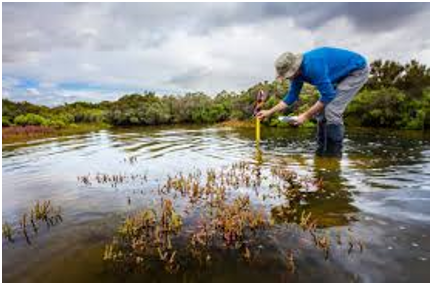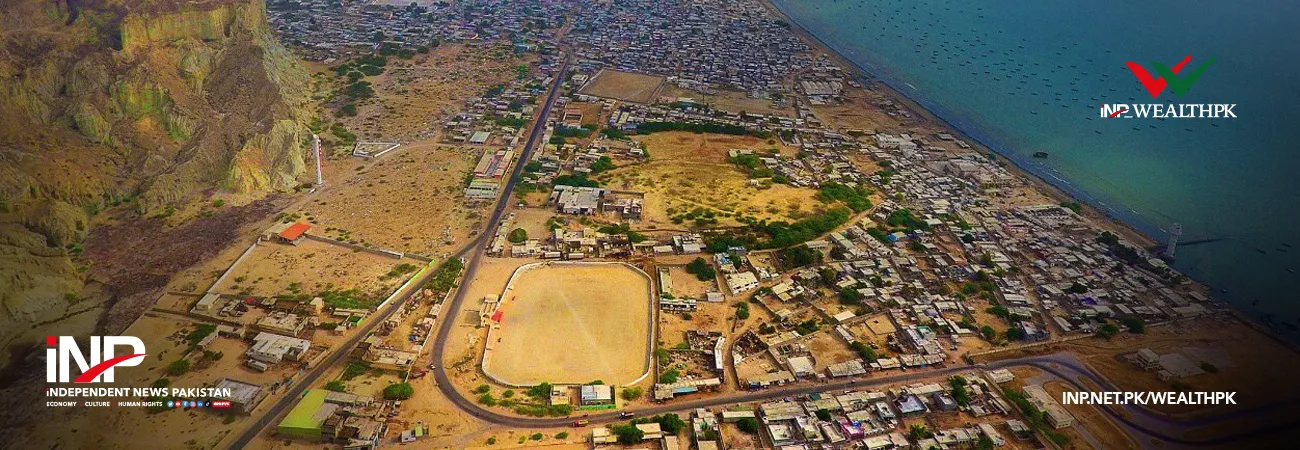آئی این پی ویلتھ پی کے
Faiza Tehseen
Pakistan needs a coordinated policy to conserve and restore its rapidly degrading wetlands, suggested Dr. Syed Mahmood Nasir, former inspector general of forests at the Ministry of Climate Change and Environmental Coordination (MoCC&EC), in an exclusive interview with WealthPK.

“Wetlands, which include lakes, marshes, swamps, and bogs, are ecosystems submerged in water either permanently or seasonally. Their ongoing loss increases Pakistan’s vulnerability to water insecurity and climate-related shocks. They play vital roles as groundwater recharge zones, flood buffers, and carbon sinks. They are also crucial stopover habitats for migratory birds traveling from Europe to India,” he explained.
Dr. Nasir highlighted that the declining water table in many parts of Pakistan is linked to wetland degradation. “If conservation and restoration of wetlands are not urgently addressed, the country will face severe water scarcity,” he warned. “To compensate for the lowering water table, tube wells are increasingly being used to extract groundwater — supplying 60% of agricultural water needs and nearly 50% of urban water demands.”
Pollution is another major threat, he noted. “Untreated sewage discharged into wetlands leads to serious contamination,” Dr. Nasir said. “Plastic bags and bottles that end up in these water bodies break down into microplastics. Aquatic species ingest them, which damages their organs and can result in death. To prevent further ecological harm, a coordinated national authority for wetland regulation and management must be established.”
Discussing with WealthPK concerning the Second Ramsar Advisory Mission to Pakistan in 2012, which identified alarming degradation at sites like Keenjhar Lake, Haleji Lake, and the Indus Delta, he said that Pakistan took steps to explore integrated wetland and river basin management. A 10-member delegation, including him, also visited China to study the Yangtze River basin and the management of the Three Gorges Dam.
He stressed that degraded wetlands contribute to severe urban and rural flooding. “Pakistan can learn from global best practices,” he said, citing China’s post-2010 flood management strategy developed with Dutch assistance. “Instead of relying on massive dams — which pose catastrophic risks if they fail — China adopted a ‘Flood Welcome Policy,’ allowing controlled passage of floodwaters to the sea by relocating settlements out of floodplains.”
Wetlands, Dr. Nasir emphasized, are complex ecosystems supporting diverse flora and fauna. Their management requires collaboration across multiple government departments. “Take the example of the Indus River dolphin,” he said. “It’s not a fish; it’s a mammal. But in Pakistan, the fisheries department handles fish, while the wildlife department deals with animals like dolphins. Without interdepartmental cooperation, wetland conservation efforts will remain fragmented.”
There is a dire need for integrated governance and expert partnerships to turn Pakistan’s wetlands into a model of sustainable natural resource management, added Dr. Mahmood Nasir.
Speaking to WealthPK about the importance of Wetland Conservation Crucial for Pakistan’s Biodiversity and Economy, Deputy Director (Technical), Muhammad Atif Majeed said, “Spanning nearly 10% of the national territory, wetlands are the most vital but undervalued ecological assets, underpinning climate resilience, biodiversity, water security and local economies. Unregulated development, pollution, and varying climate patterns are increasing wetland degradation, causing risks for natural ecosystems.”
He said that over 190 species of migratory birds, 30 species of mammals and more than 100 fish species inhabit Pakistani wetlands. Habitat degradation leads to a sharp decline in their population. Wetland ecosystems contribute billions of rupees to state wallets through fisheries, tourism, carbon sequestration, and agriculture. In spite of being engines of economic growth, wetland ecosystems remain unseen from core economic planning and budgeting frameworks.
He said, “It is necessary to institutionalize the wetland governance by establishing a national wetland authority. Some other necessary steps may include initiation and enforcement of provincial wetland protection bylaws in line with Ramsar Convention, integration of wetlands into economic and climate policy as a natural capital, and investment in monitoring, mapping, and restoration.”
It will add to the national GDP and will finance the “Climate Adaptation Plans,” he told WealthPK. By incentivizing wetland preservation, linking projects including fisheries, carbon credit selling, and eco-tourism. Community-based stewardship and public-private partnerships can be adopted to fund the restoration of degraded wetlands, expansion of GIS (geographic information system) based wetland monitoring system and to regulate the wetland inventory.
Wetland conservation is a cost-effective investment for both the environment and the economy. Community-managed wetlands can be turned into income generation hubs through promoting local communities’ handicrafts, selling, birdwatching tours, and aquaculture. To enhance their involvement and livelihood diversification, community members can be supported through training and microfinance, added Muhammad Aatif.
Credit: INP-WealthPk








